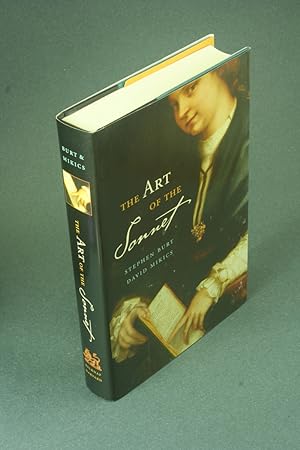burt stephanie mikics david (1 Ergebnisse)
FeedbackSuchfilter
Produktart
- Alle Product Types
- Bücher (1)
- Magazine & Zeitschriften (Keine weiteren Ergebnisse entsprechen dieser Verfeinerung)
- Comics (Keine weiteren Ergebnisse entsprechen dieser Verfeinerung)
- Noten (Keine weiteren Ergebnisse entsprechen dieser Verfeinerung)
- Kunst, Grafik & Poster (Keine weiteren Ergebnisse entsprechen dieser Verfeinerung)
- Fotografien (Keine weiteren Ergebnisse entsprechen dieser Verfeinerung)
- Karten (Keine weiteren Ergebnisse entsprechen dieser Verfeinerung)
- Manuskripte & Papierantiquitäten (Keine weiteren Ergebnisse entsprechen dieser Verfeinerung)
Zustand
- Alle
- Neu (Keine weiteren Ergebnisse entsprechen dieser Verfeinerung)
- Antiquarisch (1)
Einband
- alle Einbände
- Hardcover (1)
- Softcover (Keine weiteren Ergebnisse entsprechen dieser Verfeinerung)
Weitere Eigenschaften
- Erstausgabe (1)
- Signiert (Keine weiteren Ergebnisse entsprechen dieser Verfeinerung)
- Schutzumschlag (1)
- Angebotsfoto (1)
Sprache (1)
Preis
- Beliebiger Preis
- Weniger als EUR 20
- EUR 20 bis EUR 45 (Keine weiteren Ergebnisse entsprechen dieser Verfeinerung)
- Mehr als EUR 45 (Keine weiteren Ergebnisse entsprechen dieser Verfeinerung)
Gratisversand
- Kostenloser Versand nach Deutschland (Keine weiteren Ergebnisse entsprechen dieser Verfeinerung)
Land des Verkäufers
Verkäuferbewertung
-
The art of the sonnet.
Verlag: Cambridge, Mass.: Belknap Press of Harvard University Press, 2010, 2010
Anbieter: Steven Wolfe Books, Newton Centre, MA, USA
Erstausgabe
EUR 17,63
Währung umrechnenEUR 33,38 für den Versand von USA nach DeutschlandAnzahl: 1 verfügbar
In den Warenkorbnear fine dust-jacket, cover price $35.00, fresh attractive black half-cloth with blue boards, appears unused. attractive colorful illustrated bookplate on front endpaper with printed information: donated to the library by the publisher, but no other markings of any kind. BURT, STEPHANIE / MIKICS, DAVID. The art of the sonnet. Cambridge, Mass.: Belknap Press of Harvard University Press, 2010, 1st edition, xi, 451pp., . "Few poetic forms have found more uses than the sonnet in English, and none is now more recognizable. It is one of the longest-lived of verse forms, and one of the briefest. A mere fourteen lines, fashioned by intricate rhymes, it is, as Dante Gabriel Rossetti called it, "a moment's monument." From the Renaissance to the present, the sonnet has given poets a superb vehicle for private contemplation, introspection, and the expression of passionate feelings and thoughts." "The Art of the Sonnet collects one hundred exemplary sonnets of the English language (and a few sonnets in translation), representing highlights in the history of the sonnet, accompanied by short commentaries on each of the poems. The commentaries by Stephen Burt and David Mikics offer new perspectives and insights, and, taken together, demonstrate the enduring as well as changing nature of the sonnet. The authors serve as guides to some of the most-celebrated sonnets in English as well as less-well-known gems by nineteenth- and twentieth-century poets. Also included is a general introductory essay, in which the authors examine the sonnet form and its long and fascinating history, from its origin in medieval Sicily to its English appropriation in the sixteenth century to sonnet writing today in the United States, the United Kingdom, and other English-speaking parts of the world."-- CONTENTS: How to use these sonnets -- "Whoso list to hunt" / Thomas Wyatt (1557) -- "Norfolk sprang thee" / Henry Howard, Earl of Surrey (1557) -- "That self same tongue" / George Gascoigne (1573) -- Astrophel and Stella 45 / Sir Philip Sidney (written 1582) -- Ruines of Rome 3 / Edmund Spencer, original Joachim Du Bellay (1591) -- Delia / Samuel Daniel (1592) -- Amoretti 78 / Edmund Spencer (1595) -- Caelica 7 / Fulke Greville, Lord Broke (probably written 1590s) -- Sonnet 2 / William Shakespeare (1609) -- Sonnet 68 / William Shakespeare (1609) -- Sonnet 116 (1609) / William Shakespeare -- Phamphilia to Amphilanthus 46 / Lady Mary Wroth (1621) -- "At the round earth's imagined corners" / John Donne (probably written 1615-1633) -- "Oh, to vex me, contraries meet in one" / John Donne (probably written 1615-1633) -- "Redemption" / George Herbert (1633) -- "Prayer (I)" / George Herbert (1633) -- "On the late massacre in Piedmont" / John Milton (1673) -- Methought I saw my late espousèd saint" / John Milton (1673) -- Sappho and Phaon 24 / Mary Robinson (1796) -- "Huge vapours brood above the clifted shore / Charlotte Smith (1798) -- "London, 1802 / William Wordsworth (1802) -- "Surprise by Joy" / William Wordsworth (1815) -- "On seeing the Elgin marbles" / John Keats (1817) -- "Four seasons fill the measure of the year" / John Keats (1818) -- "Ozymandias" / Percy Bysshe Shelley (1818) -- "England in 1819" / Percy Bysshe Shelley (written 1819-1820) -- "Work without hope" / Samuel Taylor Coleridge (written) 1825 -- "Swordy well" / John Clare (probably written 1820s) "Mysterious night" / Joseph Blanco White (written 1827) -- "To-morrow" / Henry Wadsworth Longfellow, original by Lope De Vega (1833) -- "The fish, the man, and the spirit" / Leigh Hunt (1836) -- "The Columbine" / Jones Very (1839) -- "Written in Emerson's essays" / Matthew Arnold (written 1844) -- Sonnets from the Portuguese 28 / Elizabeth Barrett Browning (1850) -- Sonnets, third series 6 / Frederick Goddard Tuckerman (written before 1873) -- "Retreat" / Charles Baudelaire (translated by Rachel Hadas) -- Modern love 50 / George Meredith (1862) -- "A dream" Charles / Tennyson Turner (1864) -- "I know not why, bu.


